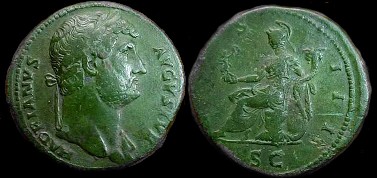|
Clientelism
Clientelism or client politics is the exchange of goods and services for political support, often involving an implicit or explicit quid-pro-quo. It is closely related to patronage politics and vote buying. Clientelism involves an asymmetric relationship between groups of political actors described as ''patrons, brokers'', and ''clients''. In client politics, an organized minority or interest group benefits at the expense of the public. Client politics may have a strong interaction with the dynamics of identity politics. This is particularly common in a pluralist system, such as in the United States, where minorities can have considerable power shaping public policy. The opposite of client politics is 'entrepreneurial' politics, or conviction politics. Although many definitions for clientelism have been proposed, according to the political scientist Allen Hicken, it is generally thought that there are four key elements of clientelistic relationships: * Dyadic relationships: ... [...More Info...] [...Related Items...] OR: [Wikipedia] [Google] [Baidu] |
Vote Buying
Vote buying (also referred to as electoral clientelism and patronage politics) occurs when a political party or candidate distributes money or resources to a voter in an upcoming election with the expectation that the voter votes for the actor handing out monetary rewards. Vote buying can take various forms such as a monetary exchange, as well as an exchange for necessary goods or services. This practice is often used to incentivise or persuade voters to turn out to elections and vote in a particular way. Although this practice is illegal in many countries such as the United States, Argentina, Mexico, Kenya, Brazil and Nigeria, its prevalence remains worldwide. In some parts of the United States in the mid- and late 19th century, members of competing parties would vie, sometimes openly and other times with much greater secrecy, to buy and sell votes. Voters would be compensated with cash or the covering of one's house/tax payment. To keep the practice of vote buying secret, parties ... [...More Info...] [...Related Items...] OR: [Wikipedia] [Google] [Baidu] |
Justicialist Party
The Justicialist Party ( es, Partido Justicialista, ; abbr. PJ) is a major political party in Argentina, and the largest branch within Peronism. Current president Alberto Fernández belongs to the Justicialist Party (and has, since 2021, served as its chairman), as well as former presidents Juan Perón, Héctor Cámpora, Raúl Alberto Lastiri, Isabel Perón, Carlos Menem, Ramón Puerta, Adolfo Rodríguez Saá, Eduardo Camaño, Eduardo Duhalde, Néstor Kirchner, and Cristina Fernández de Kirchner. Justicialists have been the largest party in Congress almost consistently since 1987. Founded by Juan Perón, it was previously called the Peronist Party after its founder. It is overall the largest party in Congress; however, this does not reflect the divisions within the party over the role of Kirchnerism, the left-wing populist faction of the party, which is opposed by the dissident Peronists (also known as Federal Peronism or Menemism), the conservative faction of the ... [...More Info...] [...Related Items...] OR: [Wikipedia] [Google] [Baidu] |
Political Machine
In the politics of representative democracies, a political machine is a party organization that recruits its members by the use of tangible incentives (such as money or political jobs) and that is characterized by a high degree of leadership control over member activity. The machine's power is based on the ability of the boss or group to get out the vote for their candidates on election day. While these elements are common to most political parties and organizations, they are essential to political machines, which rely on hierarchy and rewards for political power, often enforced by a strong party whip structure. Machines sometimes have a political boss, typically rely on patronage, the spoils system, "behind-the-scenes" control, and longstanding political ties within the structure of a representative democracy. Machines typically are organized on a permanent basis instead of a single election or event. The term "machine" usually is used by its reform-minded enemies in a pejor ... [...More Info...] [...Related Items...] OR: [Wikipedia] [Google] [Baidu] |
Susan Stokes
Susan Carol Stokes (born 1959) is an American political scientist and the Tiffany and Margaret Blake Distinguished Service Professor in the Political Science department of the University of Chicago, and the faculty director of the Chicago Center on Democracy. Her academic focus is on Latin American politics, comparative politics, and how democracies function in developing countries. Stokes is a member of the American Academy of Arts and Sciences. She was elected a member of the National Academy of Sciences in 2022. Education and career Stokes studied anthropology for her bachelor's degree at Harvard-Radcliffe and master's degree at Stanford University. She received her PhD in political science from Stanford in 1988. Since then, she has held academic appointments at the University of Washington (1988–91), the University of Chicago (1991-2005; 2018–present), and Yale University (2005–18, including serving as the John S. Saden Professor and Chair of the Political Science Departm ... [...More Info...] [...Related Items...] OR: [Wikipedia] [Google] [Baidu] |
Quid Pro Quo
Quid pro quo ('what for what' in Latin) is a Latin phrase used in English to mean an exchange of goods or services, in which one transfer is contingent upon the other; "a favor for a favor". Phrases with similar meanings include: "give and take", " tit for tat", "you scratch my back, and I'll scratch yours", and "one hand washes the other". Other languages use other phrases for the same purpose. Origins The Latin phrase ''quid pro quo'' originally implied that something had been substituted, as in ''this instead of that''. Early usage by English speakers followed the original Latin meaning, with occurrences in the 1530s where the term referred to substituting one medicine for another, whether unintentionally or fraudulently. By the end of the same century, ''quid pro quo'' evolved into a more current use to describe equivalent exchanges. In 1654, the expression ''quid pro quo'' was used to generally refer to something done for personal gain or with the expectation of reciprocit ... [...More Info...] [...Related Items...] OR: [Wikipedia] [Google] [Baidu] |
Sestertius
The ''sestertius'' (plural ''sestertii''), or sesterce (plural sesterces), was an ancient Roman coin. During the Roman Republic it was a small, silver coin issued only on rare occasions. During the Roman Empire it was a large brass coin. The name ''sestertius'' means "two and one half", referring to its nominal value of two and a half ''asses'' (a bronze Roman coin, singular ''as''), a value that was useful for commerce because it was one quarter of a denarius, a coin worth ten ''asses''. The name is derived from ''semis'', "half" and "tertius", "third", in which "third" refers to the third ''as'': the sestertius was worth two full ''asses'' and half of a third. English-language sources routinely use the original Latin form ''sestertius'', plural ''sestertii''; but older literature frequently uses ''sesterce'', plural ''sesterces'', ''terce'' being the English equivalent of ''tertius''. A modern shorthand for values in sestertii is IIS (Unicode 𐆘), in which the Roman num ... [...More Info...] [...Related Items...] OR: [Wikipedia] [Google] [Baidu] |
Corruption
Corruption is a form of dishonesty or a criminal offense which is undertaken by a person or an organization which is entrusted in a position of authority, in order to acquire illicit benefits or abuse power for one's personal gain. Corruption may involve many activities which include bribery, influence peddling and the embezzlement and it may also involve practices which are legal in many countries. Political corruption occurs when an office-holder or other governmental employee acts with an official capacity for personal gain. Corruption is most common in Kleptocracy, kleptocracies, oligarchy, oligarchies, narco-states, and mafia states. Corruption and crime are endemic sociological occurrences which appear with regular frequency in virtually all countries on a global scale in varying degrees and proportions. Each individual nation allocates domestic resources for the control and regulation of corruption and the deterrence of crime. Strategies which are undertaken in order to c ... [...More Info...] [...Related Items...] OR: [Wikipedia] [Google] [Baidu] |
Big Man (political Science)
The terms big man, big man syndrome, and bigmanism, within the context of political science, refer to corrupt, autocratic and often totalitarian rule of countries by a single person. Generally associated with neopatrimonial states, where there is a framework of formal law and administration but the state is informally captured by patronage networks. The distribution of the spoils of office takes precedence over the formal functions of the state, severely limiting the ability of public officials to make policies in the general interest. While neopatrimonialism may be considered the norm where a modern state is constructed in a preindustrial context, however, the African variants often result in bigmanism in the form of a strongly presidentialist political system. Examples Africa *Mobutu Sese Seko – President of Zaire from 1965 to 1997. He remained in office for 31½ years. While in office, he formed a regime in Zaire that attempted to purge the country of all colonial cultura ... [...More Info...] [...Related Items...] OR: [Wikipedia] [Google] [Baidu] |
Pork Barrel
''Pork barrel'', or simply ''pork'', is a metaphor for the appropriation of government spending for localized projects secured solely or primarily to bring money to a representative's district. The usage originated in American English, and it indicates a negotiated way of political particularism. Political science Scholars use it as a technical term regarding legislative control of local appropriations. In election campaigns, the term is used in derogatory fashion to attack opponents. Typically, "pork" involves national funding for government programs whose economic or service benefits are concentrated in a particular area but whose costs are spread among all taxpayers. Public works projects, certain national defense spending projects, and agricultural subsidies are the most commonly cited examples. Citizens Against Government Waste outlines seven criteria by which spending in the United States can be classified as "pork": # Requested by only one chamber of Congress # N ... [...More Info...] [...Related Items...] OR: [Wikipedia] [Google] [Baidu] |
Pesticides
Pesticides are substances that are meant to control pests. This includes herbicide, insecticide, nematicide, molluscicide, piscicide, avicide, rodenticide, bactericide, insect repellent, animal repellent, microbicide, fungicide, and lampricide. The most common of these are herbicides which account for approximately 80% of all pesticide use. Most pesticides are intended to serve as plant protection products (also known as crop protection products), which in general, protect plants from weeds, fungi, or insects. As an example, the fungus '' Alternaria solani'' is used to combat the aquatic weed '' Salvinia''. In general, a pesticide is a chemical (such as carbamate) or biological agent (such as a virus, bacterium, or fungus) that deters, incapacitates, kills, or otherwise discourages pests. Target pests can include insects, plant pathogens, weeds, molluscs, birds, mammals, fish, nematodes (roundworms), and microbes that destroy property, cause nuisance, or spread diseas ... [...More Info...] [...Related Items...] OR: [Wikipedia] [Google] [Baidu] |
Tariffs
A tariff is a tax imposed by the government of a country or by a supranational union on imports or exports of goods. Besides being a source of revenue for the government, import duties can also be a form of regulation of foreign trade and policy that taxes foreign products to encourage or safeguard domestic industry. '' Protective tariffs'' are among the most widely used instruments of protectionism, along with import quotas and export quotas and other non-tariff barriers to trade. Tariffs can be fixed (a constant sum per unit of imported goods or a percentage of the price) or variable (the amount varies according to the price). Taxing imports means people are less likely to buy them as they become more expensive. The intention is that they buy local products instead, boosting their country's economy. Tariffs therefore provide an incentive to develop production and replace imports with domestic products. Tariffs are meant to reduce pressure from foreign competition and reduc ... [...More Info...] [...Related Items...] OR: [Wikipedia] [Google] [Baidu] |





.png)